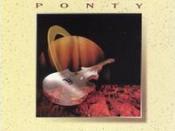Strict and absolute liability and the defence of honest and reasonable mistake of fact penetrate deep into the essence of criminal law. These concepts embody the criminal law's attempt to administer broad justice while controlling the proliferation of crime. Strict liability has developed as the 'sensible half-way house' between absolute liability and the requirement of full mens rea, and the defence of honest and reasonable mistake of fact has been applied to negative the social and legal dilemmas of these two traditional approaches.
Strict and absolute liability is derived from the statutes which create the offences. The role of the courts is to ascertain through statutory interpretation the likely intentions of the legislators and apply these intentions to the offences described in the statute.
To what extent the mental element of an offence will be relevant arises in instances where the relevant statute is silent on the matter. If a statute expressly states that the actus reus alone is sufficient to convict, the courts are obliged to follow this.
However, where the statute is ambiguous or silent as to whether the fault element is relevant it is the role of the courts to determine the intentions of Parliament. This function of the courts is a cornerstone of the law and constitutional theory.
In He Kaw Teh , Gibbs CJ cited Sherras v De Rutzen where the principle relating to absolute liability and mens rea was stated. As the court in that case held, there is a presumption that mens rea is an essential element of every offence. This famous statement of the law has come to represent the general principle in this area. The courts have come to observe the common law presumption that all offences have a subjective fault element unless the statute expressly dictates otherwise. This principle has...



Excellent Essay
this essay has been brilliantly constructed, it was great as a supplementary to reading He Kaw Teh, and about interpreting strict and absolute liability. it was an effective aid in obtaining a further understanding.
1 out of 1 people found this comment useful.